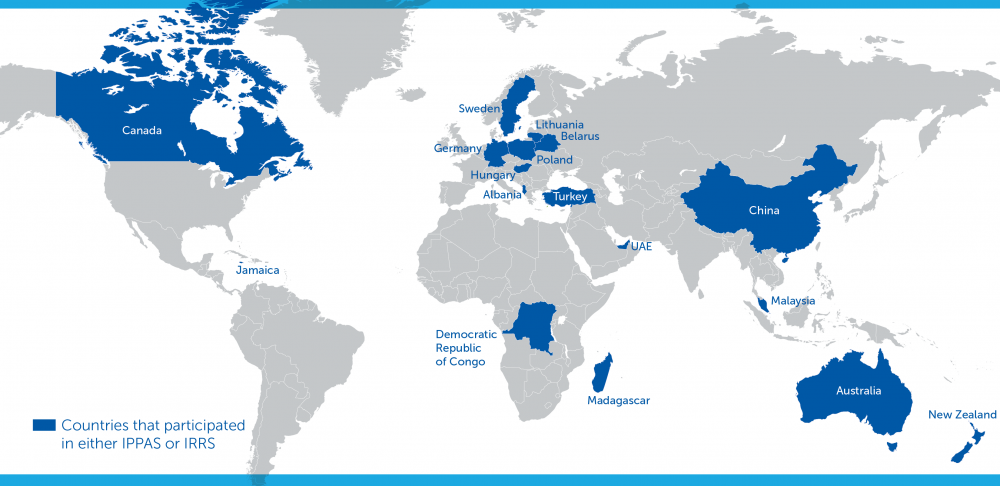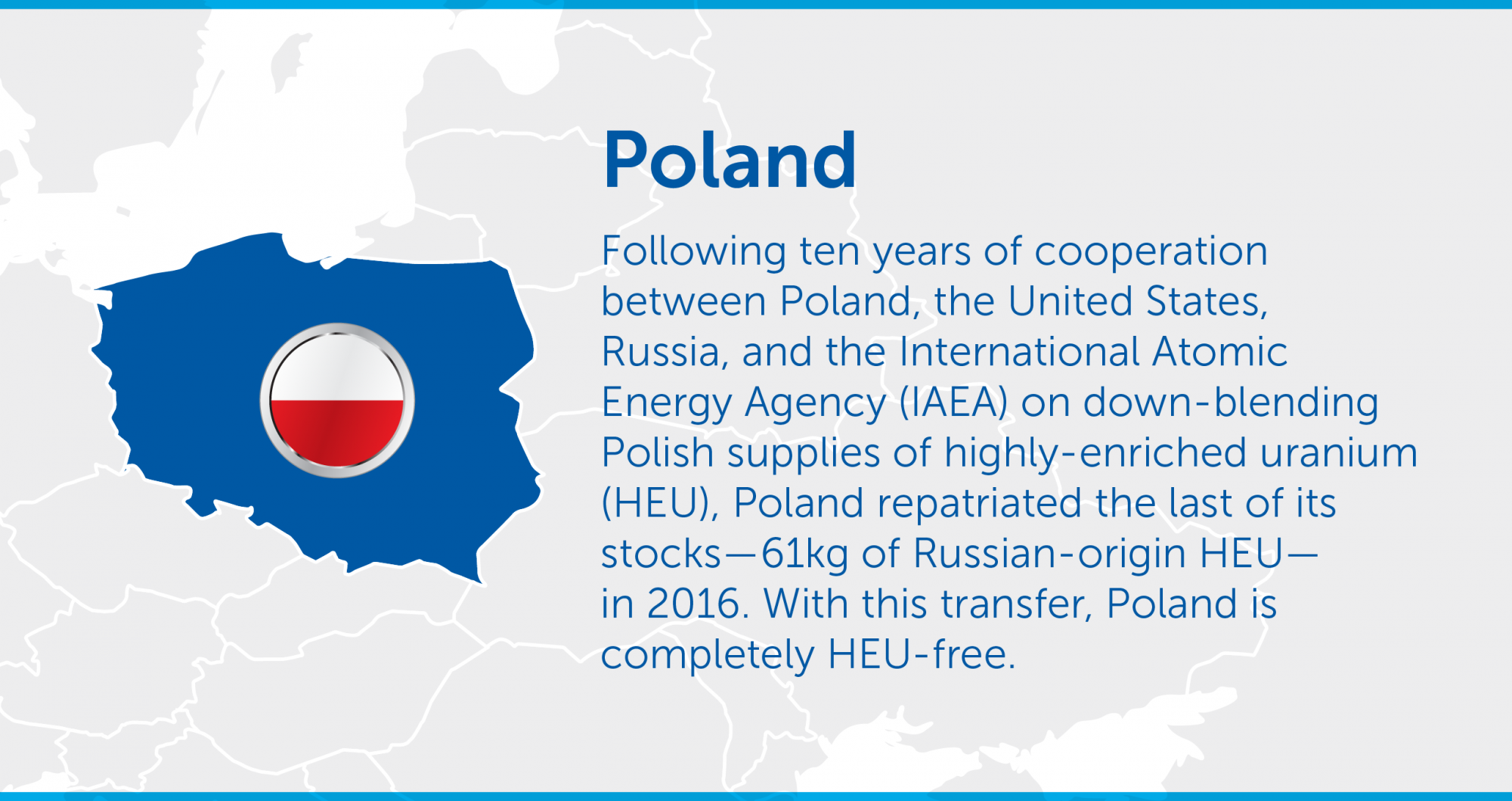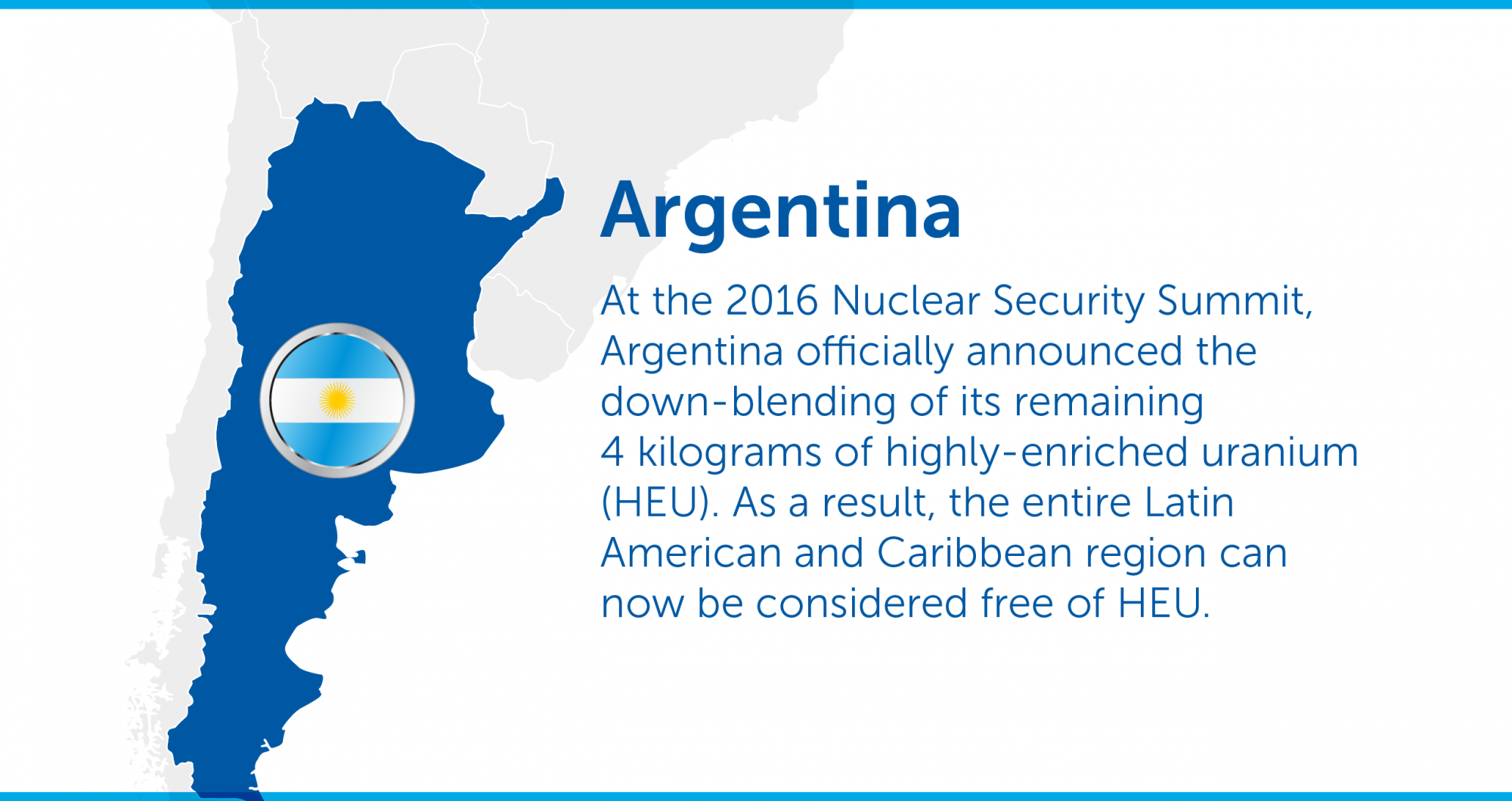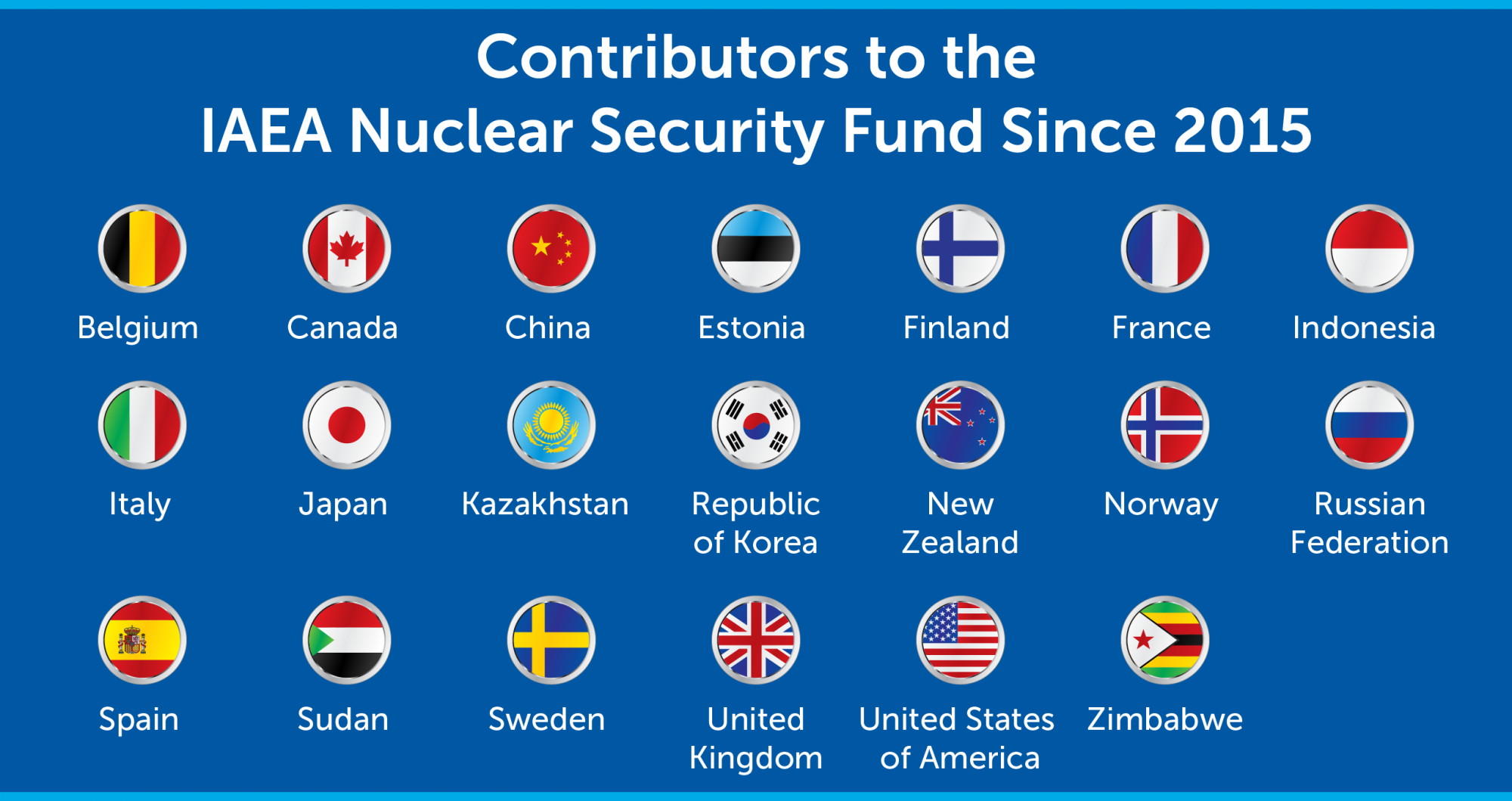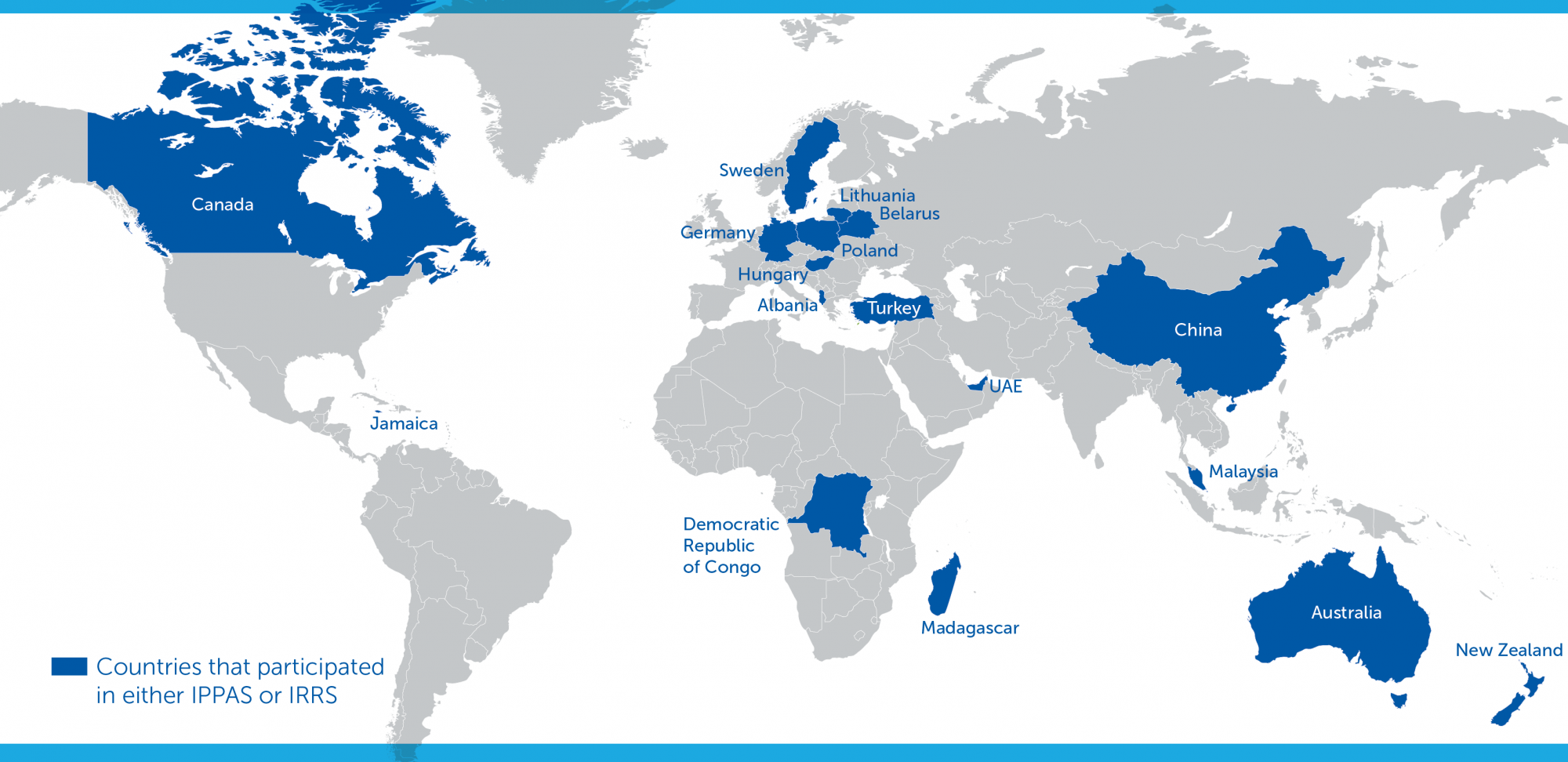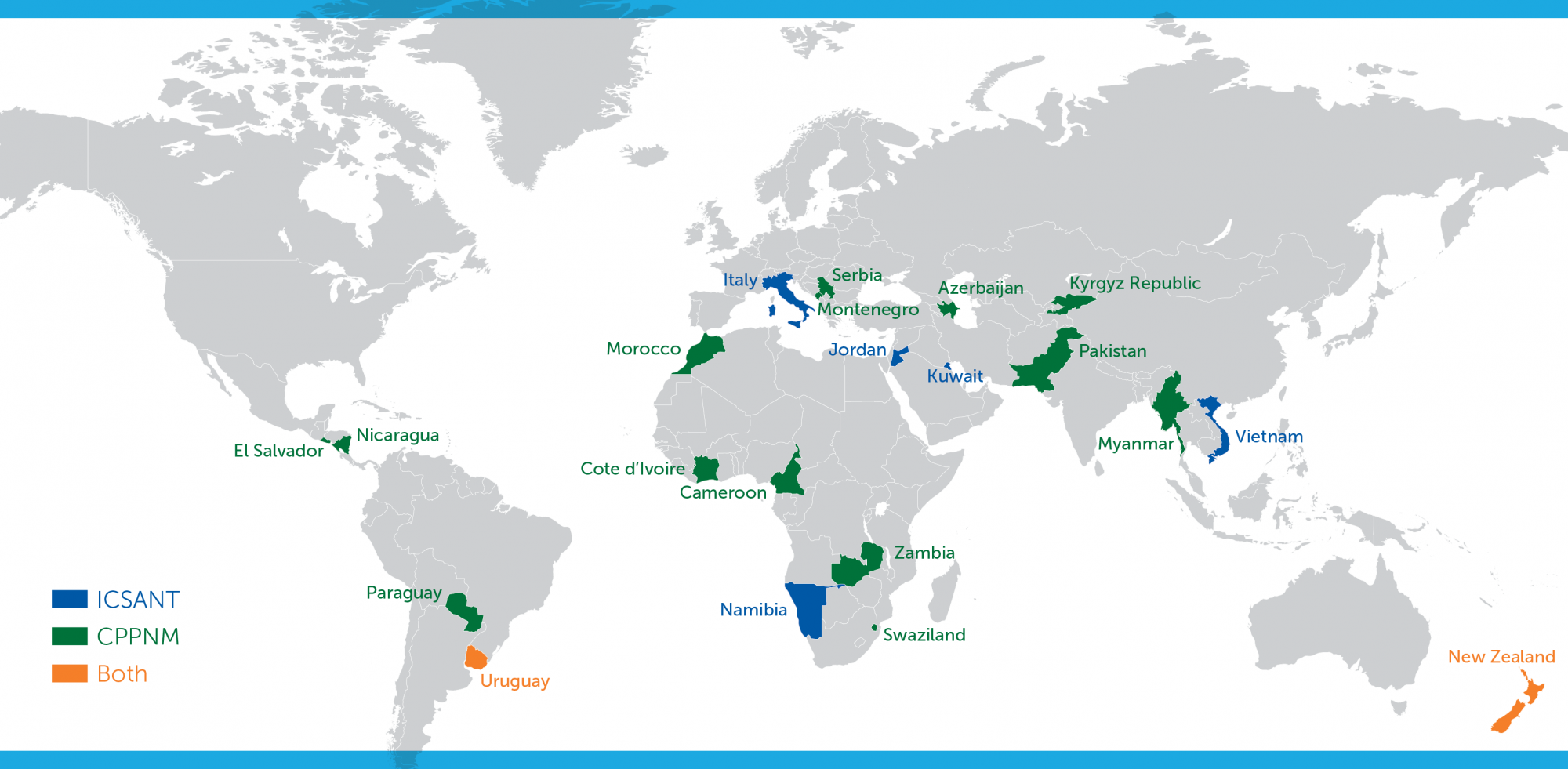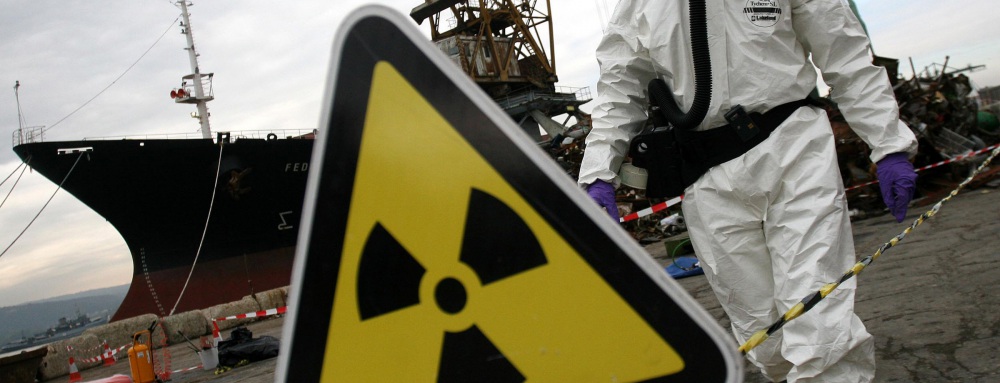
Page Stoutland, Ph.D.
Consultant, Scientific and Technical Affairs
Since the release of the third edition of the NTI Nuclear Security Index in January 2016, countries have taken positive steps to improve their nuclear security conditions. Many of these improvements are listed below and will be reflected in the next edition of the NTI Index.
While this progress is important and encouraging, much more needs to be done to achieve the ultimate goal of a comprehensive, global system for nuclear security. We see key opportunities in four areas: materials minimization and elimination, strengthening the International Atomic Energy Agency (IAEA), conducting peer reviews, and enhancing commitments to global norms and legal instruments.
During the Nuclear Security Summit process, early progress was made on minimizing and eliminating highly enriched uranium (HEU) and separated Plutonium (Pu) for civilian use. The 2016 NTI Index found that progress in this area slowed. Later that year, however, two countries—Poland and Argentina—announced they had successfully removed all HEU and separated Pu from their territory. The Nuclear Security Summits boosted international efforts to reduce nuclear material around the world, but today more work remains.
With the close of the Nuclear Security Summit process, the IAEA will be taking on even more responsibility in the realm of nuclear security. In order to continue its vital nuclear security work and make progress toward implementing the Action Plan it released at the 2016 Nuclear Security Summit, the IAEA will require substantial support from Member States.
According to the IAEA’s most recent Nuclear Security Report, published in August 2016, 20 countries contributed to the IAEA Nuclear Security Fund between July 2015 and July 2016. Those countries are listed below, and all were included in the 2016 NTI Index, except Sudan, as it was processed after data collection closed.
Maintaining and expanding the IAEA’s nuclear security activities to meet the global threat will require more resources from more countries, and we hope to see the world step up to that challenge in the coming years. The list will be updated when the next IAEA report is released.
Since data collection closed on the 2016 NTI Index on November 1, 2015, seven countries have hosted Integrated Physical Protection Advisory Service (IPPAS) missions, and an additional eight states have invited IPPAS missions to take place in 2017. Two countries have hosted IAEA Integrated Regulatory Review Service (IRRS) missions over the past year, while one additional country has invited an IRRS follow-up mission. These missions are nuclear security-focused peer reviews provided by the IAEA. See the map below for countries that were involved in IPPAS or IRRS missions.
While these numbers are encouraging, peer reviews and follow-up missions are far from universal and do not necessarily occur on a regular basis—something that may become even less frequent without biennial Nuclear Security Summits. More needs to be done to universalize regular peer reviews and follow-up missions and hold countries accountable for completing them.
The Nuclear Security Summit process accelerated country ratification of several key international treaties related to nuclear security, such as the Convention on the Physical Protection of Nuclear Material (CPPNM) and the International Convention for the Suppression of Acts of Nuclear Terrorism (ICSANT). The next NTI Index will reflect this progress, with sixteen more countries ratifying the CPPNM and seven more countries ratifying the ICSANT. Although this progress is encouraging, adherence to these legal instruments, as well as quality implementation of its provisions, remains a challenge for many countries.
This is not a comprehensive list of country accomplishments since the launch of the 2016 NTI Index, and not all improvements will lead to score increases that affect country rankings. For more information on and sourcing for these steps, download this spreadsheet.
If you are aware of any countries taking further steps, send any comments, questions, or additions to [email protected]. Visit the NTI Index site for information on individual country scores and recommended steps.
Sign up for our newsletter to get the latest on nuclear and biological threats.
“The bottom line is that the countries and areas with the greatest responsibility for protecting the world from a catastrophic act of nuclear terrorism are derelict in their duty,” the 2023 NTI Index reports.
Nuclear and radiological security aims to ensure nuclear and other radioactive materials are secure from unauthorized access and theft, and that nuclear facilities are secure from sabotage.
This paper on strengthening the security of radiological sources has been prepared for the November 2016 Global Dialogue in Warrenton, VA.
